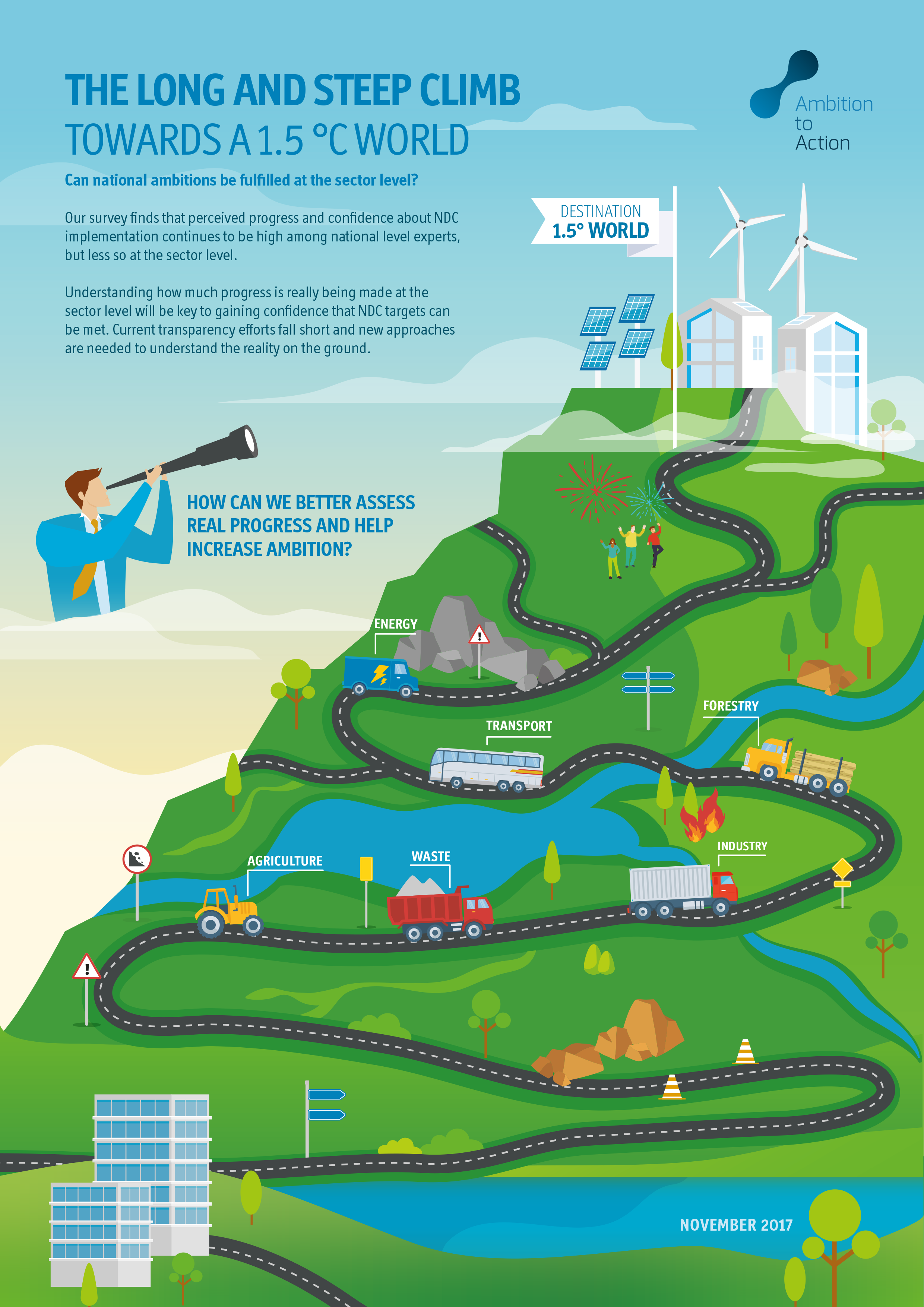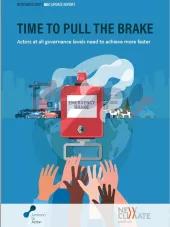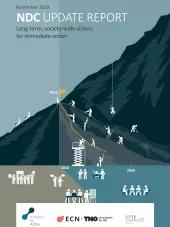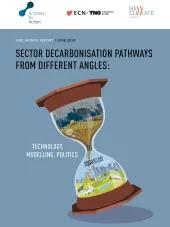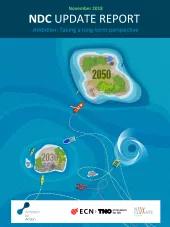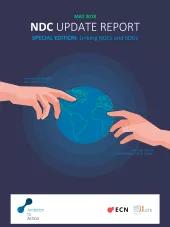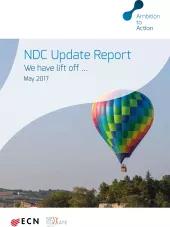This report critically analyses perceptions on the NDC implementation progress among national and sector experts involved in NDC processes in emerging and developing countries. Questions addressed in the report include: How confident are we on progress towards NDC implementation?, How easy is it to mobilise the actions needed to achieve the NDC target?, What does it take to make a convincing case for the actions needed to achieve NDC targets?, What has been happening this year to support NDC implementation? and, Where do we go from here?
This report is part of a series of biannual NDC Update Reports, published ahead of international climate change negotiations, presenting recent developments, analysis, opinion, and discussion pieces. Drawing on the Ambition to Action (A2A) project and insights from a wide range of climate change experts and practitioners, the reports aim to be a platform for learning, sharing insights, and discussing topics around the implementation of the Paris Agreement.
The NDC Update Reports focus on mitigation ambition and action in developing countries and emerging economies (with an occasional look at industrialised countries for contrast or comparison).
Key messages
- Survey results: optimism and confidence but devil is in the sectoral details
- Results from a survey we conducted for this NDC report point again to confidence and optimism among experts involved in NDC implementation in emerging and developing countries, suggesting that countries believe they are on track to meet their NDC ambitions
- However, the results also show significant differences in responses between national experts (generally confident and optimistic) and sector experts (generally more critical and reserved):
- Alignment of policies and strategies: e.g. at national level 55% believe their country is making very good/ good progress in aligning sector development plans with NDC and 68% are very highly/ highly confident in achieving this alignment. At sector level, a majority identifies the alignment of policies and strategies as highly likely to become a major challenge to implement NDC/ raise ambition.
- Funding and access to (international) finance: e. access to finance is thought to be a bigger challenge at sectoral than at national level (63% compared to 48%)
- Skills and capabilities: only 38% of sector level experts strongly agree or agree that government has the necessary skills and capabilities to develop and put in place effective policies to implement the NDC
- Potential reason for this discrepancy: National level experts, often the country’s UNFCCC focal points/ key negotiators, behave strategically from a negotiations perspective and are not fully in tune with, or ignore, realities on the ground
- Other interesting findings:
- Finance and support
- Only 38% of respondents say that their government has already quantified resource needs
- Only a small majority says that there are attractive investment opportunities for NDC implementation in the country
- 90% of respondents say that their government needs to become more effective in attracting private capital
- When international funds are secured for domestic NDC implementation, they do not seem to be effectively tailored to countries’ needs (only 17% say they are)
- 67% think that technical support received is not adequate - surprising given the large number of technical support initiatives available
- Long-term low GHG emission development strategies
- Confusion about long-term low GHG emission development strategies (35% claiming that they already have adopted long-term low emission development strategies and/ or included them in policy or national legislation)
- Finance and support
- How easy is it to mobilise the actions needed to achieve the NDC target? Room for a new diagnosis tool
- Existing assessments of NDCs tend to focus solely on analysis of countries’ targets and self-reported emissions and policy data
- No information about the likelihood that a country or sector will be able to achieve its targets
- We therefore argue that there is room for a new diagnostic, which complements existing analyses, and which can be used to assess ’fitness’ to achieve NDC targets or further sector decarbonisation
- The proposed framework acknowledges general context features, but primarily revolves around the interplay of actors, policies and institutions as well as evidence and ideas for effective policy design and NDC implementation.
- Some of the broad questions that we hope to unpack in regard to fitness are: How favourable is the general context? Are actors ready and able to change? Do the institutions and policies create a conducive environment? Are the ideas convincing and is the evidence compelling?
- What does it take to make a convincing case for the actions needed to achieve NDC targets? An enhanced benefits approach!
- Not yet clear that climate change mitigation goals are sufficient motivation to create the necessary political will to enable sector transitions, given the challenges and trade-offs that these will entail
- There are significant synergies between low carbon pathways and broader development objectives. A better appreciation of these linkages can decisively shift the cost-benefit calculation for mitigation actions, and help build support among sector stakeholders.
- Mitigation options should be evaluated in terms of their impacts on broader objectives, as well as their investment costs. These impacts can include, for example, increased energy security, greater employment, reduced air pollution, and higher economic growth
- Quite some convincing still needs to be done to ensure that we are on track to meet the NDC targets and an enhanced benefits approach could help make the case for mitigation actions
- To date, country-specific evidence remains rare, especially in developing countries, and efforts to fill these gaps could make an important contribution to NDC implementation
- Where do we go from here? Other ways to assess real progress and more work to make sector transitions happen
- We expect that many hurdles will still need to be overcome – both to make implementation effective and to increase ambition
- Future NDC Update Reports will expand further on the dimensions of sector ‘fitness’, reflect on ambition, and elaborate on the use of benefits evidence to support sector transitions and thus effective NDC implementation
